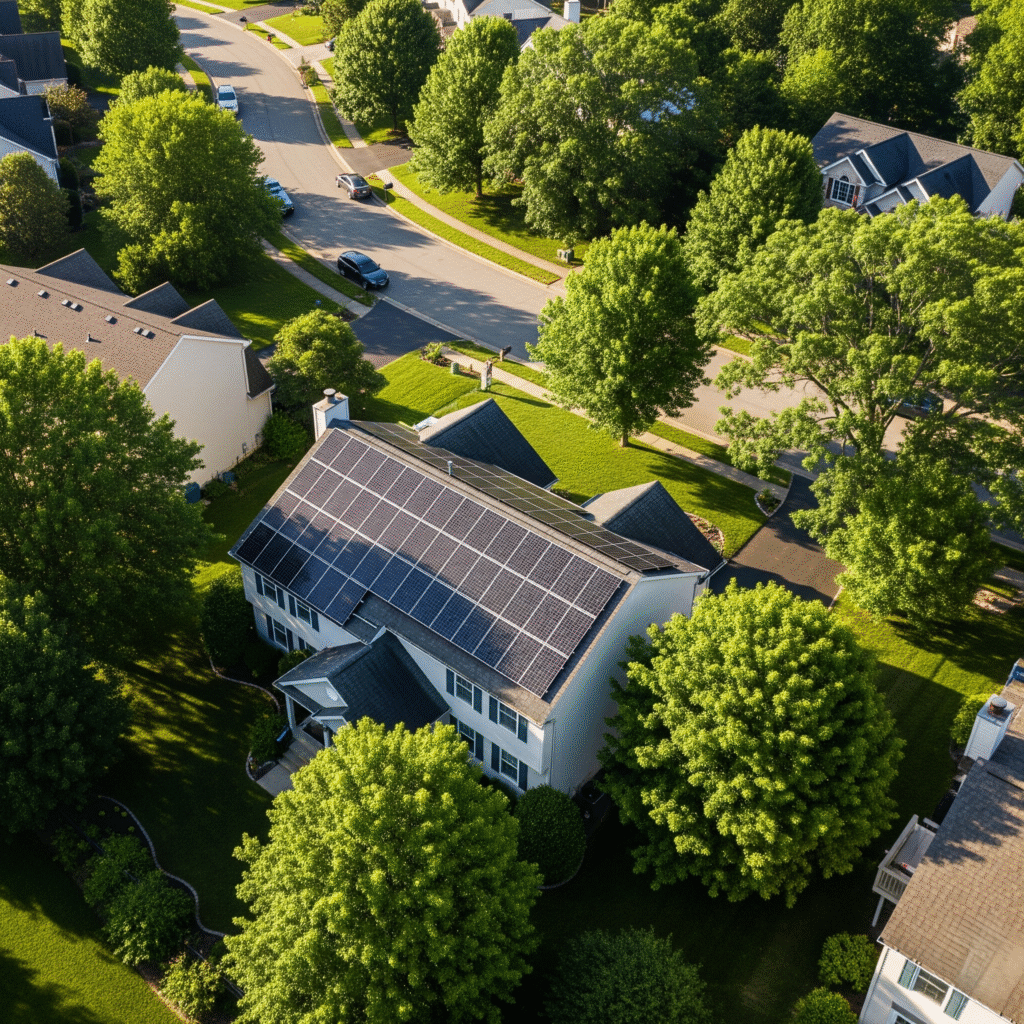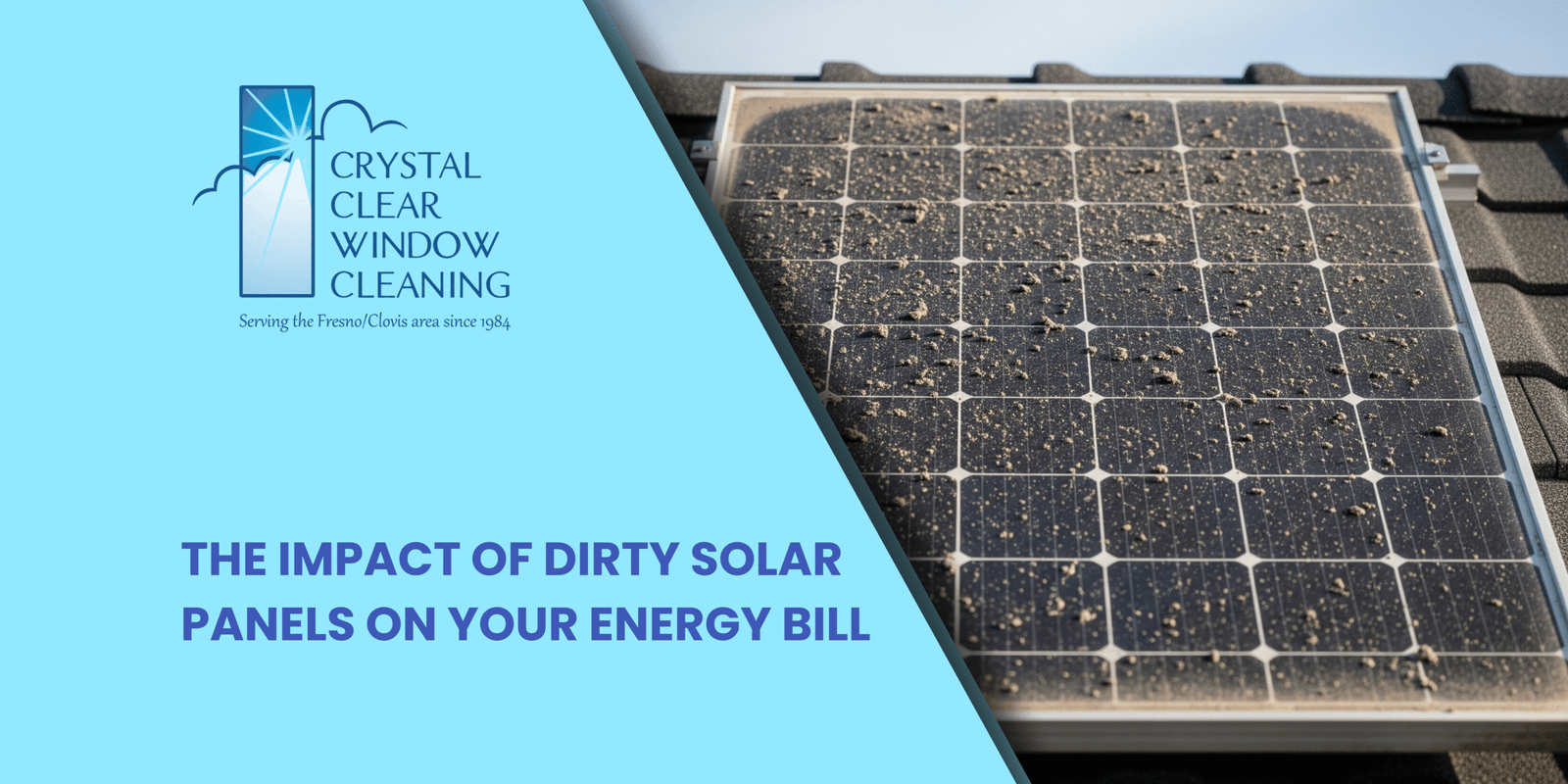Introduction: Why Clean Solar Panels Matter
Investing in solar panels is a smart way to reduce electricity bills and embrace renewable energy. However, many homeowners underestimate how dirt, dust, pollen, bird droppings, and environmental pollutants can affect solar panel efficiency. Over time, these contaminants block sunlight from reaching the photovoltaic cells, directly reducing power generation. This means dirty solar panels can quietly increase your energy bill without you realizing it.
How Dirt Affects Solar Panel Performance
1. Reduced Sunlight Absorption
Solar panels work by absorbing sunlight and converting it into electricity. A layer of dust or grime acts like a filter, blocking part of that sunlight. Even a thin layer can cause a noticeable drop in output.
2. Hot Spots and Potential Damage
When dirt accumulates unevenly, it can create hot spots, areas where the panel overheats. This not only reduces performance but can shorten the panel’s lifespan.
3. Increased Dependence on Grid Power
If your panels produce less energy, you’ll rely more on grid electricity. As utility rates rise, this dependency increases your overall energy costs.
Real Cost Impact: How Dirty Panels Affect Your Energy Bill
The National Renewable Energy Laboratory (NREL) estimates that dirty solar panels can lose between 10% to 25% of their efficiency depending on environmental conditions.
For example:
- If your system generates $100 worth of electricity per month, a 20% drop in efficiency means $20 lost every month, or $240 annually.
- Over the 25-year lifespan of your panels, that’s $6,000 in lost energy savings, just from dirt buildup.
Factors That Make Solar Panels Get Dirty Faster
- Location & Climate – Dusty, windy, or polluted areas accumulate dirt faster.
- Nearby Trees – Falling leaves, pollen, and bird droppings cause stubborn stains.
- Proximity to Roads – Vehicle exhaust and road dust settle on panels quickly.
- Low Roof Angles – Panels at shallow angles collect more debris since rainwater runoff is less effective.

Signs Your Solar Panels Need Cleaning
- Noticeable drop in your monthly energy output.
- Visible dust, bird droppings, or leaves on panels.
- Increased reliance on grid electricity despite sunny weather.
- Performance monitoring system alerts indicating reduced output.
How Often Should You Clean Solar Panels?
While rain can wash away some dust, it’s often not enough for heavy dirt or sticky residues. The general recommendation is:
- Every 6 months in moderate climates.
- Every 3-4 months in dusty, dry, or polluted areas.
If your panels are near trees or bird habitats, more frequent cleaning may be needed.
DIY vs Professional Solar Panel Cleaning
DIY Cleaning
- Pros: Low cost, can be done anytime.
- Cons: Risk of damage, personal safety concerns, limited effectiveness for stubborn stains.
Professional Cleaning
- Pros: Thorough cleaning, specialized tools, safe process, efficiency checks included.
- Cons: Service cost (though offset by restored energy savings).
Maximizing Energy Efficiency Beyond Cleaning
Keeping your panels clean is crucial, but you can also:
- Install a performance monitoring system to track output.
- Trim overhanging trees to reduce debris.
- Schedule seasonal inspections to catch issues early.
The Long-Term Benefits of Clean Solar Panels
- Lower Energy Bills – Maximum sunlight absorption means less reliance on grid electricity.
- Extended Panel Lifespan – Prevents hot spots and mechanical wear.
- Better Return on Investment – Faster payback period and higher long-term savings.
- Environmental Impact – Cleaner panels mean more renewable energy and a reduced carbon footprint.
Conclusion: Don’t Let Dirt Steal Your Solar Savings
Dirty solar panels may seem harmless, but the efficiency loss adds up, both in energy production and your monthly bills. Regular cleaning, whether done yourself or through professionals, is a small investment that delivers significant savings over time. If you want to ensure your solar panels work at peak performance, keeping them clean should be part of your regular home maintenance routine. Contact us today!

